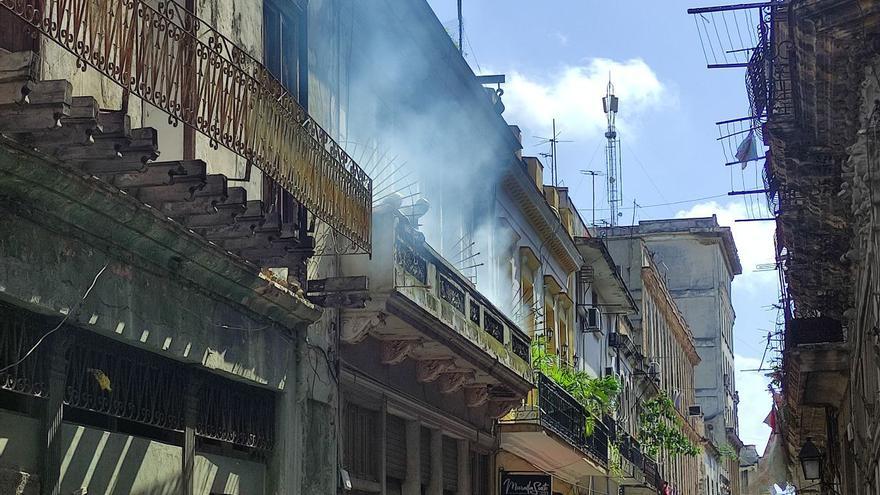
![]() 14ymedio, Juan Diego Rodríguez, Havana, 22 August 2022 — The tiredness that María felt last Wednesday did not bode well, although, at first, she thought it had been the walk in the sun throughout Central Havana in search of bread. Later, her discomfort made her fear the worst of it, of which she had no doubts the next day, when she woke up with a fever of 101F: she had dengue fever.
14ymedio, Juan Diego Rodríguez, Havana, 22 August 2022 — The tiredness that María felt last Wednesday did not bode well, although, at first, she thought it had been the walk in the sun throughout Central Havana in search of bread. Later, her discomfort made her fear the worst of it, of which she had no doubts the next day, when she woke up with a fever of 101F: she had dengue fever.
The woman, however, refuses to have it confirmed by a doctor. “I take a lot of fluids, vitamins and paracetamol for the fever,” she tells this newspaper. “If you go to the doctor they don’t give you anything either.” María remembers that the last time she suffered from the disease, 12 years ago, when she was visiting relatives in the province, “they almost brought me to the police because I refused to go to the hospital.”
At that time, she points out, they hospitalized people to avoid contagion. Now, she ventures, alluding to his central Havana neighborhood, “this must be riddled with dengue, because today they were fumigating the streets early and they never do that here.”
“If all those who get sick went to the doctor, the official figures would be much higher, but a good part of the population is afraid of being admitted, and so people do not go,” the official press published this Monday, citing a patient from Pinar del Río.
In the same article, the director of the Provincial Center for Hygiene, Epidemiology and Microbiology of that province, Andrés Villar, offers the figure of 1,457 outbreaks as a result of the Aedes aegypti mosquito in the Vueltabajo area alone. However, the State newspaper Granma does not go beyond describing the situation as a “complicated scenario.”
In Ciego de Ávila, the newspaper Invasor echoes that the infection rate in the provincial capital, of 0.43 –- compared to the permissible 0.05 -– “sets off the alarms.”
Yordanka Hernández Rodríguez, deputy director of Epidemiology at the Municipal Hygiene Unit, reported that last week, of 114 samples analyzed in Ciego de Ávila, 48 were positive.
The Ministry of Public Health, for its part, has not issued any alert or figures that encompass the entire country. The minister, José Ángel Portal Miranda, appealed to “individual and family self-responsibility” in the face of the spread of the virus.
The minister also warned that patients can progress to a serious condition “very precipitously” and are asked to go “immediately” to medical services “at the slightest sign of alarm that may appear, especially between the third and seventh day after the first symptoms, such as repeated vomiting, edema or swelling, severe abdominal pain, irritability, drowsiness and bleeding.
This Sunday, on the fourth day after her first symptoms, the fine rash characteristic of the disease appeared on María’s extremities. She no longer has a fever, but she prays that it does not turn into severe dengue, hemorrhagic fever, the only case in which she would go to a doctor: “If I go, I only help them with the statistics; they are not going to help me.”
____________
COLLABORATE WITH OUR WORK: The 14ymedio team is committed to practicing serious journalism that reflects Cuba’s reality in all its depth. Thank you for joining us on this long journey. We invite you to continue supporting us by becoming a member of 14ymedio now. Together we can continue transforming journalism in Cuba.
